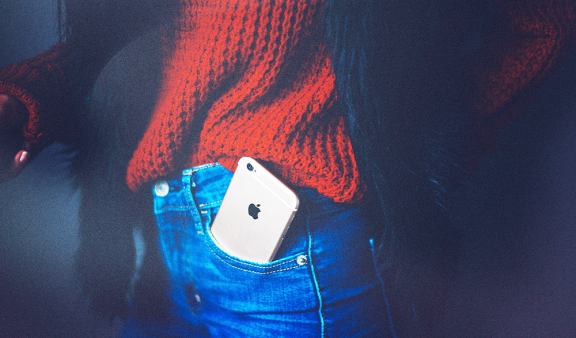
Your very own Karl Lagerfeld in your smartphone
Artificial intelligence can enable major progress in areas ranging from the military to education and health. e-commerce and fashion are no exception. We step into the shoes of a B2C user to see what kinds of challenges can be met with the use of AI.
A disappointing e-commerce experience
It's midnight, Friday the 23rd of November 2018, your laptop is fully charged, your Internet connection is stable, your bank account is in good shape (even though it could always be better), and you've been waiting for this moment for some time. Black Friday is here at last! However, even though you identified potentially interesting websites beforehand, you begin to get lost in the maze of great deals on offer. There is no shortage of good deals, but what can you do with an 80% discount on a beautiful red cashmere sweater when you can't stand that colour? The first page doesn't have much of interest, so you click on the next page, then the next, and then the next... Meanwhile, your bank card is itching to get some action, as tonight is its big night. The clock reads 00:32 when you finally manage to find a pair of shoes you like. Delighted, you jump at the opportunity and then disaster strikes: "The requested size is no longer available." You spent too long searching and the same thing happens several times. The time is now 01:04, and you've finally settled on a few items, but they were not the ones you had your heart set on. After a disappointing night, you (and your bank card) retire to bed in a glum mood. Your sleep is restless, and you dream of a revolutionary app – a virtual assistant that knows you inside out. More than an assistant, it is an image consultant that knows your body shape, favourite colours and brands, and the clothing styles that suit you… Your very own Karl Lagerfeld, who points you in the direction of items that are sure to please you! It would be such a fashion expert that it could even anticipate future trends and turn you into a top Instagram influencer.
Artificial intelligence to avoid frustration and provide a tailor-made experience
Of course, all of this remains a dream for now, as fashion is far too subjective a field to be able to programme such an app. However, artificial intelligence, and progress made in deep learning technologies in particular, give us real hope. Today, the Big Four are able to develop artificial intelligences that can understand something as complex and ambiguous as natural language. Why shouldn't they be able to understand a person's tastes? There is AI out there that can recognise road signs to adapt the behaviour of a self-driving car. So shouldn't it be able to recognise which clothing styles suit customers? AI capable of image recognition also exists, so why shouldn't it be able to analyse trending photos on Instagram during events like Fashion Week?
It seems clear that in the future users will benefit from advice worthy of a Karl Lagerfeld directly on their smartphones. Beyond fashion itself, advice could be even more personalised since variables such as budget and body shape could be taken into account without discrimination (contrary to what certain science fiction films would have us believe, AI is nothing but love and it loves everyone). Users would have access to better advice than in stores (with AI that knows them perfectly), while saving a considerable amount of time.
Rest assured, despite such progress, artificial intelligence will not replace human intelligence and it will still be possible (for the purists among you) to go shopping in stores.